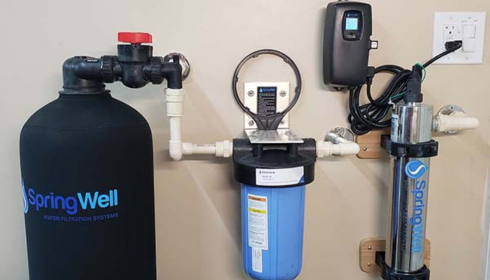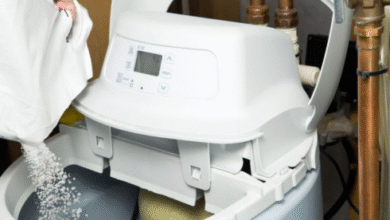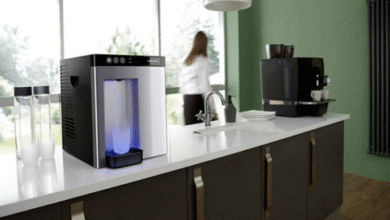Finding Clarity in Every Drop: Why the Right Water Filter Matters More Than You Think

Water is one of those things we take for granted until it doesn’t taste right. You fill a glass straight from the tap, expecting freshness, but instead you’re hit with a metallic tang, or worse, that faint chlorine bite that lingers on your tongue. If you’ve ever wrinkled your nose at the smell or found yourself unconsciously reaching for bottled water, you already know the subtle ways water quality affects daily life. It’s not just about thirst—it’s about comfort, confidence, and, honestly, peace of mind.
Most people don’t pause to think about the silent hero of modern living: the humble water filter. Tucked under the sink, attached to a faucet, or built into a system in the basement, these little workhorses quietly remove the stuff you don’t want while preserving the purity you do. But not all filters are created equal. Choosing the right one can make the difference between a home where water feels like luxury and one where every glass is a gamble.
More Than Just Clean Water—It’s About Trust
The idea of “clean water” is deceptively simple. On the surface, you just want it clear, fresh, and safe. But water can carry so much: minerals, bacteria, rust, sediments, even faint hints of pesticides or industrial residue depending on where you live. Each household’s situation is unique, and that’s why filtration isn’t one-size-fits-all.
If you live in the city, your tap water has likely traveled through miles of pipes—some newer, some decades old. Along the way, it can pick up traces of metals or sediments. Rural homes, on the other hand, often rely on wells, which come with their own quirks like higher iron content or that distinctive “rotten egg” smell from sulfur. That’s where brands step in with purpose-built solutions. A WaterTech water filter, for example, is engineered to tackle a broad spectrum of contaminants while keeping maintenance manageable. It’s not flashy, and that’s the beauty—it just quietly does its job, sip after sip.
The Special Case of Well Water
If you grew up in a rural area, you probably know that well water has its own character. Some people even claim to like the mineral-rich taste—it feels earthy, grounding, a reminder that it’s straight from the ground beneath your feet. But let’s be honest: not all of those “minerals” are things you actually want in your body. High iron, excess hardness, or even microbial risks can sneak into the supply. And fixing those issues isn’t just about making the water taste better; it’s about protecting your plumbing, appliances, and health in the long run.
That’s why households using private wells often invest in a Well water filter. Unlike generic solutions, these systems are designed specifically for the unpredictable chemistry of groundwater. They target sediment, iron, and bacteria in ways city-focused filters might not. It’s the kind of quiet upgrade that doesn’t just change how your water tastes today—it changes how confidently you can host a dinner party or brew coffee without worrying about cloudy cups.
When Water Smells Wrong
There’s a moment every homeowner dreads: turning on the faucet and being greeted by a smell that just doesn’t belong. Maybe it’s sulfurous, maybe it’s musty, maybe it’s hard to pin down. Whatever the case, odor in water can be unsettling. It makes brushing your teeth a chore, washing veggies feel questionable, and showers less refreshing.
Enter the Odor removal filter, a type of system specifically designed to target the culprits behind those unpleasant scents. Activated carbon often plays a big role here, absorbing the volatile compounds that cause odors. For some, installing one of these filters feels like a revelation—suddenly, the hesitation is gone. Water smells like…well, nothing. And that’s exactly how it should be.
The Subtle Ripple Effects
What people don’t always realize is how interconnected water quality is with everyday living. Better-tasting water nudges you to drink more, which, let’s face it, most of us could use. Clean water makes cooking simpler—pasta boils without leaving strange residue, coffee tastes fuller, vegetables rinse without that faint chlorine shadow. Even skin and hair respond differently when you’re not bathing in water that’s heavy with contaminants.
And then there’s the bigger picture: appliances last longer, pipes stay cleaner, and you’re not contributing to the mountain of single-use plastic bottles because your home supply is finally something you trust. It’s one of those quiet lifestyle shifts that doesn’t announce itself with fanfare, but slowly transforms the rhythm of your days.
So, Which Filter is Right for You?
This isn’t a product pitch, and the truth is there isn’t one answer that fits everyone. Some people need a simple faucet attachment, others benefit from a whole-house system. It depends on where you live, what your pipes are like, and what bothers you most about your current water. The good news is that technology has evolved to meet nearly every need, whether that’s tackling sediment, reducing chlorine, softening hard water, or eliminating odor.
If there’s one takeaway, it’s this: don’t settle for “good enough” when it comes to water. The difference between tolerating and truly enjoying your water is surprisingly small—a thoughtful investment, a bit of research, maybe a conversation with a local expert. And once you experience the upgrade, you’ll probably wonder why you waited so long.
A Final Sip of Thought
At the end of the day, water is more than hydration—it’s a foundation of comfort, health, and home. Every glass you drink, every meal you cook, every shower you take is touched by its quality. The right filter doesn’t just improve water; it improves the texture of daily life.




